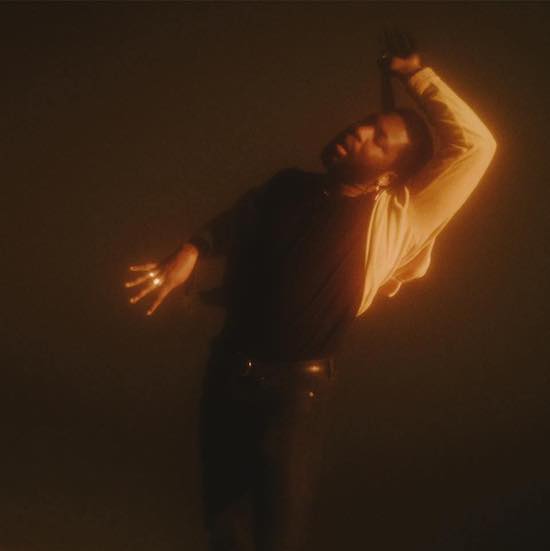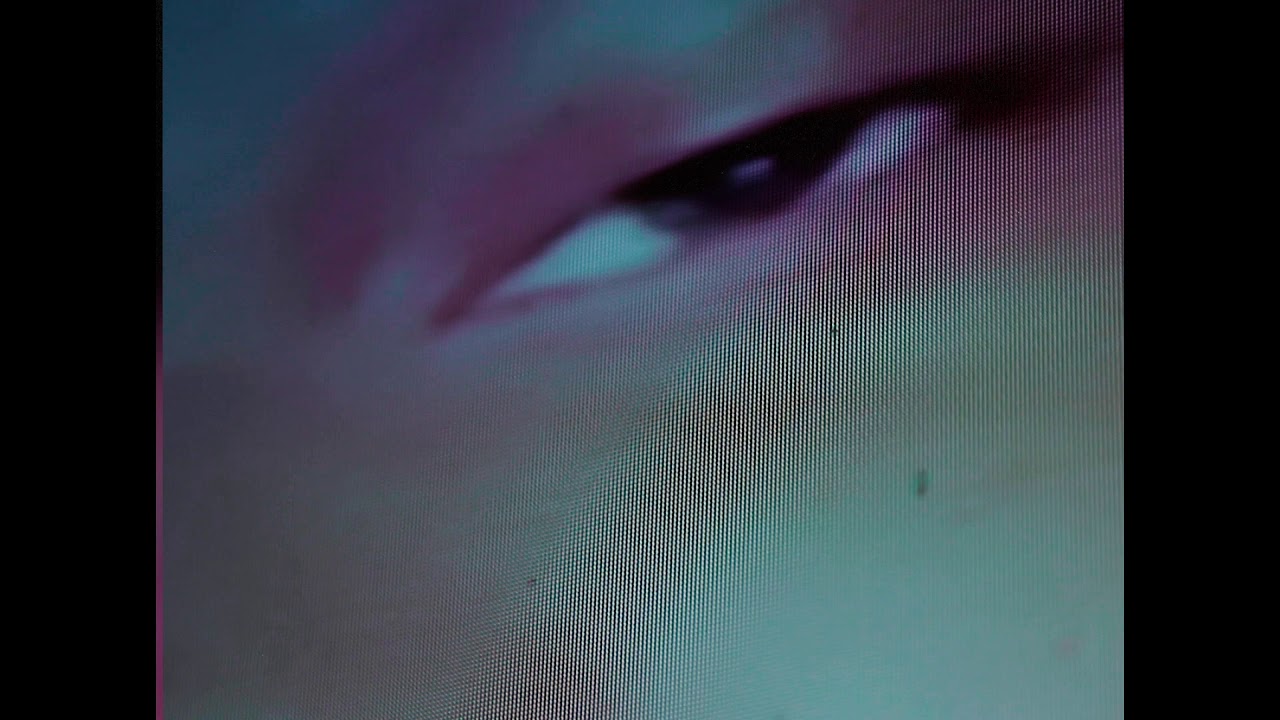It is rare to be in the presence of something you feel is completely new. In the bombardment our senses take from a constant slew of sound and images, newness is often diluted. In the work of Tony Njoku, the British-Nigerian experimental pop artist, one feels not only the presence of newness through individual songs – in their constant shapeshifting of tone and texture; in their spiralling melody interrupted by a drastic change of rhythm – but also on a wider scale. It’s hard to think of anyone who is fusing the same elements in the same way as Njoku has over the course of three albums.
However, his work rarely feels gratuitously difficult. There’s always a rich current of accessibility running through his most extreme production choices, and often there’s rhythmic foundation that will act as a steady bedrock for experimentation. In a live context this is how the uninitiated will best connect with Njoku’s work. The synths may be bending and self-destructing incomprehensibly, but bold and powerful drum machines are foregrounded to let the audience react physically.
Njoku’s latest EP, Justine showcases an even newer directness to his process in the form of melody and structure that borders on pop. Even in the brevity of the EP form, one gets a sense of a grander structure at work; the first two songs quoting each others’ melodies but representing them in very different forms.
For full disclosure, Tony has become a good friend of mine over the past few years, and has toured with me, not only as a supporting act, but as a member of the band I’d assembled to perform my last album in full. While this may colour my assessment, it is perhaps in this closeness to his work that I’ve noticed a disparity between what I hear in his music and how it has often been represented. So when asked to conduct this interview, I felt pleased to finally have a chance to relate something of what I see in his work to others.
Firstly, who is Justine?
Tony Njoku: No one! I was humming the melody and that’s the name that came into my head. What’s funny is my mother, after listening to the last record, (Your Psyche’s Rainbow Panorama) was like, "You use ‘I’ too much. It’s always ‘I, I, I, me me me!’" [Laughs] So Justine is still about me in a way, but instead of saying “I”, I use the name ‘Justine’. I don’t know anybody named Justine.
It’s more direct, this EP. In comparison with the last record it sounds like you’re putting the pop in the foreground this time.
TN: I think the main thing was just having fun. Even the ‘JUSTINE’ track, it still has a personal feel. it’s still emotional but it’s not like [the song] ‘100% 4 BEAUTY’ where, it’s a very intense subject matter. To me, it’s more uplifting.
In terms of the production, it’s not as off-kilter as my other stuff, especially in the rhythm section. There’s a pop rhythm that’s the thing of the moment; that half-time trap beat with the 808 hi-hat and shuffling off-time kick drum. And the bassline, that’s that’s just trap music. In the trap world, I’m really big on Pierre Bourne, Young Thug, Playboy Carti. This is just something I wanted to try. I wanted this to be fun.
You’ve been very album-oriented up until now and usually there’s a lot of shorter tracks that thread together to form a nice whole. Why did you think an EP was the right length this time?
TN: I just didn’t want to go through the whole album thing right now, having to do one hundred bits of press and just having to push and push. This time it’s like, here you go. Here it is.
With the last record, man, I put a lot into that, and it didn’t feel easy to make. And I think what I accomplished I’m really proud of, and so I would hate to put something out that wasn’t up to par with that in terms of quality. I really take the album thing very seriously. I love the whole process of immersing yourself for six months, having your themes, doing research about them. But I also realised that’s not the easiest thing to do all the time. I also need to take a breather and enjoy life outside of, "arting", or "musicking", rather.
Has that been a liberating thing so far?
TN: Yeah, I think so. Having people focus on the singles has been great. On the last record there’s still some songs I haven’t really heard anybody talk about. Even though people say they love the whole record, there are some moments where I’m like, "I’m not sure if I did that right." I try to reach out to friends to ask, "What do you think about that?" But with this one they’ll give me a brief review of every single song because it’s easier.
Are you a perfectionist?
TN: No, not at all. If it feels good, then it is. There’s two things when I write music that I try and embody. One process is premeditating the idea I want to get across, or the message; the feeling and then I go from that. The other one is that it’s like doing push-ups for me. I’m just making and making and not really thinking about it; making things just to get better. Maybe I’ll do 100 ideas or something, then the next month I’ll start looking at those and think “that works with this and that works with that”. It’s like mathematics. As soon as I get the formula right then I let it go.
‘JUSTINE’ and ‘BSD YRSELF’ have got that similar melodic hook. I don’t think they share words but it’s almost like they’re quoting each other. Is that right?
TN: Yeah, you’re absolutely right. It’s why I made them bleed into each other a bit. There’s definitely a connection going on there. The words aren’t the same and the subject matter isn’t the same either, but they’re like brother and sister. One moment is quite uplifting and the other has a more moody, brooding energy. Everything is a continuation. Everything just carries on from the last. At the end of it it’s more reductionism than productionism.
It’s very difficult to define what it is you do with words or genre tags. So how would you describe it to people?
TN: I think it always changes depending on my mood that day but whenever I think about that question I always think, "where in the musical scene do I want to sit?", and I love the people who are doing things in the experimental pop genre. Bjork, Arca, even Aphex Twin.
One thing that’s been in my head a lot, not specifically with this EP, but since I’ve been doing this kind of music, is about identity. And obviously, with everything going on right now, I’ve been thinking a hell of a lot about my identity and how this EP is probably the most… Afro-centric? I don’t even think that’s right, but it’s the most influenced by modern R&B and hip hop that I’ve put out. It’s funny that I chose to go this route now and not before. I’ve been having a lot of conversations with friends, who tell me [they] don’t really see people doing the kind of work I do who look like me.
Have you been conscious of that before?
TN: 100%. All my life I’ve been conscious of that. I used to rap when I was a younger kid. I love rap music, but it wasn’t me, wasn’t my true self. I was just doing it because that’s what people wanted to hear from me. And that’s when I made the transition to stuff I really like. Since making that transition, the music I make has brought me into spaces where I’m usually the only Black person. I used to be fine with that. But now I think, what does that say about our industry that doesn’t include? Because I’m sure there are a bunch of other people of colour like me, who like what I like, but I don’t see them.
It makes you realise how closed off certain genres and scenes can be, even if they have the best or most inclusive intentions.
TN: 100%. It’s not that people have bad intentions or people are trying to be racially exclusive or anything, it’s just that’s the way it is. It’s the same with the record labels. I go in for a meeting and there’s nobody there that really looks like me. I imagine these people are not racist, and that’s not their intention. But for someone like me who is so dedicated to this music, it’d be great to see more people like me in this space, who are thriving.
Since I’ve listened to your stuff I’ve never thought that it was just about your identity. It’s always been about your own psyche, your own thoughts. It’s been interesting to see how people have written about you over time. I’ve read a lot of pieces that said you were R&B. And if I just do a search on you, everyone’s saying R&B. Up until this EP I’ve thought, “Well I don’t really hear that going on?”
TN: 100%. How do I say this without sounding like an angry Black man? [Laughs] I fucking hate that to be honest. ‘Cause you’re right, the stuff I’ve put out isn’t R&B influenced. There’s just the essence of some Black American music ideas. It is very reductionist. Because I’m a Black artist, I am not named with my white peers in the same category. I’m sort of put in this other space.
I always speak about Nina Simone. She said that she just wanted to be a composer, that she wanted to be a classical concert pianist. But so many people know her for her voice. Not as many people know that she’s a really talented pianist. And not even playing jazz. She knew how to play Bach, Schumann, she was really into that world. But she never got to actualise that because of what she was seen as.
It’s almost like people want to project their own narrative onto what you are doing, that they want the music you’re making to “tackle with these themes” or whatever you want to say.
TN: It alludes to the fact that in music culture, our Western society dehumanises the Black artists by saying, "We only like to consume the art you make when it has to do with your racial disposition. We want to hear about your culture, rather than hearing about your humanity.” I think it was Vince Staples saying that people love Black culture because we sell trauma. That’s what people want to see from us. I felt that’s so interesting. I’m more than a Black artist. I’m an artist the same way Picasso was an artist, or John Lennon was an artist. There’s a million other people or genres you can think of that I emulate before you go to R&B, you know?
Justine is out now




